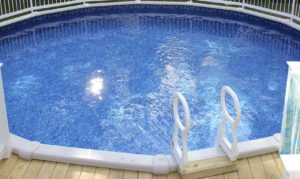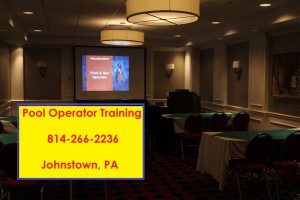It’s been headline news lately – internationally, nationally, and locally (Western PA) – about the problems aquatic facilities have had safely managing their facilities. We’ve blogged previously about safety being a layered approach and yet we see time and time again reports of “immediate closure” due to violations. News reports suggest that the operators of facilities getting hit with such emergency closures are surprised when regulators shut them down. It may be logical to presume that the facilities in question must not have adopted an effective system for managing their facility safety.
“It was never a problem before” is the general theme I read and heard a facility manager say recently in news reporting covering the closure of his public pool. When we teach aquatics operators, one of our introduction slides is our “Top 10 Awful Reasons” for the way we as humans do things.
Top 10 Awful Reasons:
- “We’ve never done it that way”
- “Always done it that way”
- “Been doing this for 30 years”
- “Throw away the book, here’s how”
- “Here’s a shortcut”
- “That’s not important”
- “It’s easier this way”
- “It’s cheaper…”
- “I’ll just get my buddy”
- “That takes too long”
When you hear of an immediate closure and someone says “It’s never been a problem before” it just means nobody got caught. The problem was (or problems were) there all along. When a facility gets closed suddenly – an “emergency” closure – one can easily figure that there is no effective Risk Management strategy. It would be fair to say facility management never implemented a formal Risk Management Program.
An effective Risk Management strategy will consider 4 factors:
- Negligence
- Standard of Care
- Duty of Care
- Record Keeping
Considering those 4 factors, a pool operator – the pool management staff – must develop written plans to manage:
- The Prevention of Injuries to Patrons and Staff
- The Protection of Facility Assets
- Minimizing Legal Liability
With a comprehensive Risk Management Plan, the facility “catches itself.” Better yet, the facility can manage and budget to the latest standards. They will certainly incorporate on-going inspections, audits, and routine maintenance – catching issues before they become major (and costly) problems. And, as repairs, changes, and additions are needed, they can be accomplished with regard to all the latest applicable standards. The facility will also have a review process to consider how a change to one part of a system will affect other systems or parts of systems.
One of the many services provided by Lehmann Pools & Spas is facility operator training. As instructors, our goal is to help you properly manage your facility, not just keep the Chlorine and pH adjusted. We can teach you how to develop a Risk Management System for your public aquatic facility.
We are big proponents of the National Swimming Pool Foundation’s (NSPF®) Certified Pool Operator (CPO®) program. We believe the CPO® program is more thorough and comprehensive educational than many other training curricula. Taught correctly, it is better at providing in-depth instruction. It is certainly beyond many programs in the marketplace who only seem concerned with meeting the regulatory requirements of pool operators – for instance those concerned with being certified pesticide applicators.
A well-taught program such as the NSPF® CPO® course well-equips the facility operator to effectively manage their facility. An added benefit of the CPO® program is the knowledge that the National Swimming Pool Foundation provides a comprehensive list of resources to effectively manage aquatic facilities.









